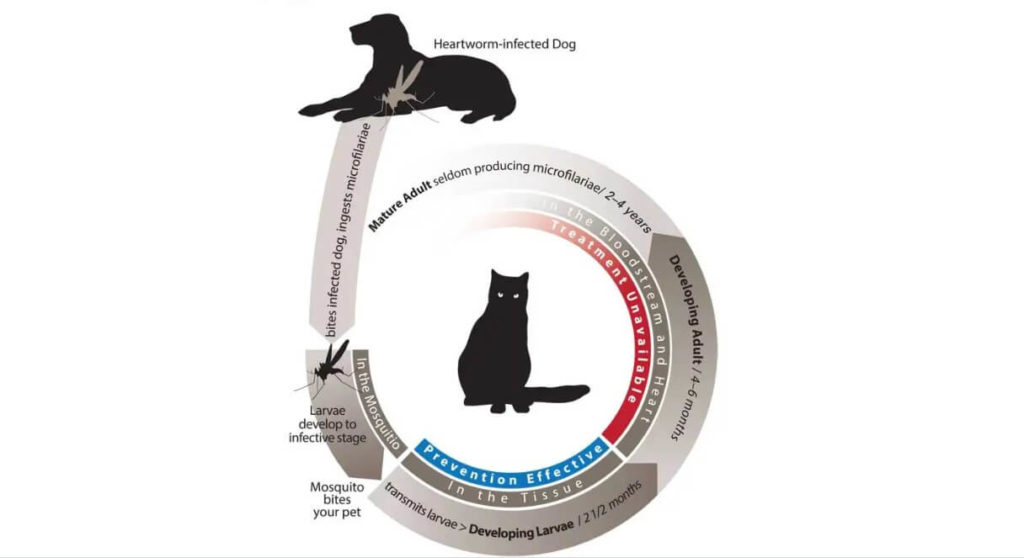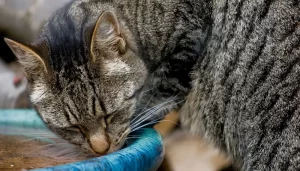Myth 1: Heartworm can be a dog’s disease
Heartworm is becoming more common in cats than ever before. I was skeptical about feline heartworm infections so I did a year-long study on shelter cats. These results were very interesting to me. The results showed that 26 percent of cats had been infected by heartworm larvae at one time or another. I also found adult heartworms in ten percent of the cats. This is a far greater number than the feline immunodeficiency viruses (FIV), which have a 5 percent and 6 percent respectively.
Myth 2: Heartworms are not a problem in indoor cats
Heartworm is not an issue in indoor cats. Study found that heartworm in indoor cats is not common.
Myth #3: Heartworms can cause heart disease in cats
Cats are not affected by “heartworm disease”, as the worm affects only the lungs. Cat heartworm disease is most commonly seen in cats as a cough, difficulty breathing, and vomiting. However, it can also cause anorexia and blindness, collapses, convulsions and diarrhea.
Cats with feline heartworm diseases are often misdiagnosed as feline asthma, allergic bronchitis, or other respiratory conditions. Sometimes, a cat might die suddenly without any signs. Cats are different in the way their respiratory systems respond to heartworms. This is why a new name was given to the symptoms: Heartworm Associated Respiratory Disease or HARD. Cats with HARD may have trouble breathing and even die. Once an infection has occurred, there is no cure.
Myth #4: Only adult worms can cause problems
Heartworm isn’t usually a problem in dogs until the worms reach adult stage and lodge within the pulmonary arteries. However, a cat’s symptoms of heartworm are not caused by an adult worm. In fact, the larvae are the main culprit. Studies have shown that 50 percent of cats with heartworm larvae are suffering from significant damage to their small blood vessels, which supply blood to their lungs.
Myth 5 – It is easy to determine if your cat has heartworm disease.
Cats are more difficult to diagnose than dogs. Also, tests do not always reveal the true cause of an infection. Most commonly, the tests used for dogs detect only adult female worms. Most cat infections don’t reach the adult stage and some may have male worms. Current testing methods can miss many of these infections. Talk to your veterinarian if your cat has signs of heartworm disease. Heartworm treatment can be difficult or ineffective for cats. Prevention is the best way to control the disease.



